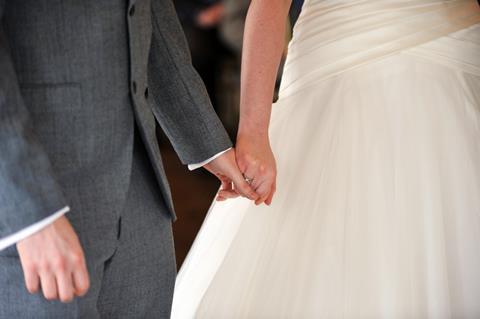
These affirmations are offered as a positive contribution to the Church’s ongoing theological discernment as part of the Living in Love and Faith project, and as an invitation to ongoing conversation. They seek to present a concise but broad vision of Christian life and discipleship, to bring greater clarity to our points of convergence and divergence, and to encourage and equip those who remain committed to the inherited teaching of the Church .
These claims are sponsored by a number of members of the House of Bishops, whose names appear below, and are supported by a wider group within the House and College. They should be read in conjunction with the previous article on the Church of England’s doctrine of marriage.
CREDAL ORTHODOXY
“For in Christ all the fullness of the Godhead dwells bodily, and you are made complete in Him who is the head of all rulers and of all authority. » Colossians 2:9-10
We profess, in common with the universal Church, an unreserved commitment to the Nicene Creed. Its Trinitarian foundation and exclusive Christology, its affirmation of the goodness and promised fulfillment of incarnate humanity within the created order, its teaching on the coming judgment and its emphasis on unity, holiness, The catholicity and apostolicity of the Church provide vital markers for our times as a summary of the teaching of the Holy Scriptures.
The Holy Scriptures contain everything necessary for salvation and reveal God’s will for human life and behavior. As the articles say, what is not found in Scripture cannot be imposed on the Church, and the Church does not have the authority to command anything contrary to the written word of God . We seek to interpret Scripture guided by the Catholic Church across time and space.
UNIVERSAL CHURCH
“You are a chosen race, a royal priesthood, a holy nation, God’s own people, that you may proclaim the mighty deeds of him who called you out of darkness into his marvelous light. » 1 Peter 2:9
We celebrate the call of the universal Church to serve the people and societies in which it is located, while recognizing that it will never be fully comfortable in any culture, since its primary loyalty is to the Kingdom of God present and to come. In its diverse cultural contexts, the Church is called to bear witness boldly to the Gospel of Jesus Christ, identifying and rejecting the idols and harmful ideologies of every age. We are called to be strangers and strangers in the world, committed to Christ and turning from sin.
The Anglican Communion is part of this universal Church, called to bear witness to Jesus Christ and his Gospel, and must play its part in answering Jesus’ prayer for his people to be united. The Church across the world is interdependent, and true provincial autonomy within the Anglican Communion cannot change the reality that what one does affects the others. We stand with all faithful Christians, including our Anglican brethren around the world who are committed to remaining faithful to the historic faith and moral teaching of the Church.
SUPERNATURAL FAITH
“Our gospel message has come to you not only in words, but also in power, by the Holy Spirit and with full conviction. » 1 Thessalonians 1:5
We declare confident faith in the life-giving and sanctifying power of the Holy Spirit. We are attached to the sacraments of Baptism and the Eucharist and to the effectiveness of prayer. We recognize the invisible dimensions of spiritual life, the reality of the miraculous and the joy of eschatological hope, living the vocation of the Church as a family of believers in all our diversity.
Marriage and celibacy, in their different ways, bear witness to this eschatological hope and have offered paths to holiness from the earliest days of the Church until today. Marriage is more than a contingent social arrangement. As a joyful and permanent union of man and woman, the two forms of created humanity, marriage is a dynamic sign of the saving union between Christ and the Church through the Spirit, d ‘where our salvation springs. It thus represents the rapprochement of difference and is the place specific to sexual intimacy, from the union from which the miracle of a new life can be born. Celibacy is more than sexual renunciation. It is a positive declaration of the ultimate sufficiency of our eternal union with God in Christ, centered, like Jesus, on leaving spiritual descendants.
SACRIFICIAL DISCIPLE
“I have been crucified with Christ; and it is no longer I who live, but it is Christ who lives in me. Galatians 2:19-20
We rejoice in the baptismal Christian life as life in all its fullness through dying to self in repentance and faith. Joy and peace paradoxically come from sacrifice and renunciation, not from the search for fulfillment or self-expression. The Church invites all people to a life of worship and holiness, serving others with compassion and learning to reach outward in love of God and neighbor.
In a society where questions of inclusion and identity are pressing, we rejoice that Christ calls all to follow him without exception. We discover who we are created to be, as men and women made in the image of God through our relationships with God in Christ and with each other, regardless of our sexuality or gender. All are invited to find true forgiveness, belonging, identity, peace, joy, hope and an eternal destiny in Christ, our crucified, resurrected and ascended Lord.
Signed by:
Jill Duff, Bishop of Lancaster
Jonathan Gibbs, Bishop of Rochester
Ric Thorpe, Bishop of Islington
Martin Warner, Bishop of Chichester
Andrew Watson, Bishop of Guildford
Pete Wilcox, Bishop of Sheffield
Paul Williams, Bishop of Southwell and Nottingham
On behalf of a wider group within the House and College.


